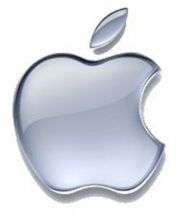Is Apple doing itself harm in case of missing iPhone?

While law-enforcement officials ponder the legality of computer equipment seized from the home of a blogger, analysts on Tuesday say Apple Inc. may be doing itself harm in the case of a missing iPhone prototype that ended up on the Internet.
The company has long been known for its penchant for secrecy -- and has gone after reporters and bloggers in the past for reporting what it considers to be company secrets. This time, with an investigation now in the hands of prosecutors, analysts believe that Apple is at the very least likely to land a big black eye, in terms of negative publicity.
Roger Kay of Endpoint Technologies Associates said in an interview that Apple blundered by making the case a criminal one, as opposed to a civil case.
"There is no way that this is not negative in some way for the company," Kay commented. "The question here is what is Apple hoping to get?"
He added that Apple and Chief Executive Steve Jobs "have in the past known how to back out of mistakes pretty quickly." But the state is now the "wild card," as it is running the investigation.
"Apple has been drifting into looking like the wrong side of their famous Big Brother ad for some time," observed Rob Enderle, a longtime Silicon Valley technology analyst. "This could easily turn out to be one of the biggest mistakes the firm has ever made because the investigation ... could showcase other Apple problems as this story snowballs."
The chief deputy district attorney for San Mateo County, Calif., Stephen Wagstaffe, said Tuesday that computers and other gear taken from the Bay Area home of Jason Chen, an editor for the popular gadget blog Gizmodo, will not be examined until the office determines whether the material is covered by California "shield laws" that prevent law-enforcement authorities from examining material gathered by journalists.
On Monday, Gizmodo reported that Chen's house had been raided by the Rapid Enforcement Allied Computer Team task force, which seized several computers and related gear.
Earlier this month, Chen and his employer said they paid $5,000 for an apparent prototype of an iPhone that was found in a bar in Redwood City, Calif. The device allegedly was left by an Apple employee and was found by another patron, who sold it to Gizmodo. The blog ran a detailed story on the new device, which is widely believed to be the next version of the popular iPhone that Apple is expected to introduce sometime this summer.
Apple complained to local authorities, reporting the matter as a theft to the San Mateo County prosecutors. Chief Deputy District Attorney Wagstaffe said the company was referred to REACT, a multicounty law-enforcement team that investigates high-tech crimes in Silicon Valley.
Wagstaffe said the DA's office actually has not searched the equipment taken from Chen's home. Gawker Media, owner of the Gizmodo site, claims the equipment is covered by California's shield laws.
Legal specialists in the San Mateo district attorney's office are examining the question, and hope to make a recommendation to the REACT team by the end of the week.
"We can do this one completely aboveboard. We're not going to lose any evidence by waiting to search this equipment, and we're not going to invade anyone's privacy if we determine not to use it," Wagstaffe said, adding that his office was dealing with "a fairly novel area of law."
It is not known exactly what information the company gave to the REACT team to spark the investigation. An affidavit used to secure the search warrant will not be filed publicly until 10 days after the warrant was executed, according to Wagstaffe. That affidavit could contain more information about what the company told investigators.
The chief deputy district attorney also indicated that the search warrant is not considered executed until investigators actually search the computers themselves. He said the REACT team will make the decision on whether to search the machines once his office makes a recommendation.
Yet the case brings to light "Apple's excessive control over local law enforcement," according to Enderle, and may even play into local politics in an election year.
Gene Munster, who covers Apple for Piper Jaffray, does not think that the news will hurt the stock or that the company itself in the long term, except for the possible effect of people delaying a purchase of an iPhone during the June quarter in the hopes of getting a newer device later in the year.
"It's been a great PR event for Apple, because people are fighting over the iPhone," Munster said in an interview. "It shows the amount of interest Apple has."
Shares of Apple were down nearly 2 percent to $264.16 by early Tuesday afternoon -- part of a heavy sell-off in the tech sector as well as on the broader market.
But the company's image could suffer, as it already has employed heavy-handed tactics to keep its products under wraps.
This also is not the first time it has gone after a blogger. Apple sued sites called PowerPage.org and Think Secret in 2005 for revealing details of unreleased products. Think Secret later agreed to shut down as part of a settlement deal with the company.
Enderle said the company also doesn't buy any favors with the press this way, even if Apple does not consider bloggers to be part of the established press. "The age-old advice is don't attack folks who buy ink by the barrel. That likely should be updated to not attacking folks who have page hits in the millions."
(c) 2010, MarketWatch.com Inc.
Distributed by McClatchy-Tribune Information Services.



















